第40章 CHAPTER XX(2)
It might have been better if Theobald in his younger days had kicked more against his father: the fact that he had not done so encouraged him to expect the most implicit obedience from his own children. He could trust himself, he said (and so did Christina), to be more lenient than perhaps his father had been to himself; his danger, he said (and so again did Christina), would be rather in the direction of being too indulgent; he must be on his guard against this, for no duty could be more important than that of teaching a child to obey its parents in all things.
He had read not long since of an Eastern traveller, who, while exploring somewhere in the more remote parts of Arabia and Asia Minor, had come upon a remarkably hardy, sober, industrious little Christian community--all of them in the best of health--who had turned out to be the actual living descendants of Jonadab, the son of Rechab; and two men in European costume, indeed, but speaking English with a broken accent, and by their colour evidently Oriental, had come begging to Battersby soon afterwards, and represented themselves as belonging to this people; they had said they were collecting funds to promote the conversion of their fellow tribesmen to the English branch of the Christian religion. True, they turned out to be impostors, for when he gave them a pound and Christina five shillings from her private purse, they went and got drunk with it in the next village but one to Battersby; still, this did not invalidate the story of the Eastern traveller. Then there were the Romans--whose greatness was probably due to the wholesome authority exercised by the head of a family over all its members.
Some Romans had even killed their children; this was going too far, but then the Romans were not Christians, and knew no better.
The practical outcome of the foregoing was a conviction in Theobald's mind, and if in his, then in Christina's, that it was their duty to begin training up their children in the way they should go, even from their earliest infancy. The first signs of self-will must be carefully looked for, and plucked up by the roots at once before they had time to grow. Theobald picked up this numb serpent of a metaphor and cherished it in his bosom.
Before Ernest could well crawl he was taught to kneel; before he could well speak he was taught to lisp the Lord's prayer, and the general confession. How was it possible that these things could be taught too early? If his attention flagged or his memory failed him, here was an ill weed which would grow apace, unless it were plucked out immediately, and the only way to pluck it out was to whip him, or shut him up in a cupboard, or dock him of some of the small pleasures of childhood. Before he was three years old he could read and, after a fashion, write. Before he was four he was learning Latin, and could do rule of three sums.
As for the child himself, he was naturally of an even temper, he doted upon his nurse, on kittens and puppies, and on all things that would do him the kindness of allowing him to be fond of them. He was fond of his mother, too, but as regards his father, he has told me in later life he could remember no feeling but fear and shrinking. Christina did not remonstrate with Theobald concerning the severity of the tasks imposed upon their boy, nor yet as to the continual whippings that were found necessary at lesson times.
Indeed, when during any absence of Theobald's the lessons were entrusted to her, she found to her sorrow that it was the only thing to do, and she did it no less effectually than Theobald himself, nevertheless she was fond of her boy, which Theobald never was, and it was long before she could destroy all affection for herself in the mind of her first-born. But she persevered.